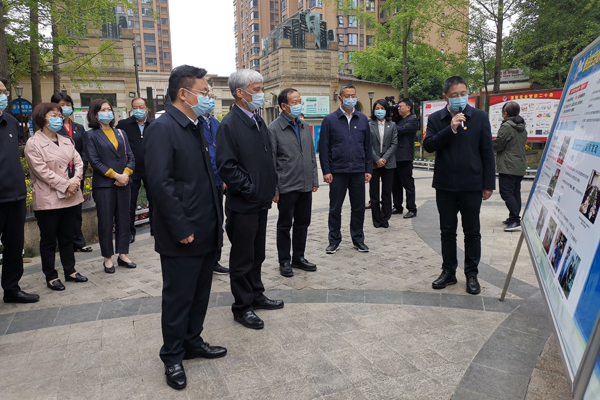Senior legislator inspects enforcement of Environmental Protection Law in Sichuan

A team led by Ding Zhongli, vice-chairman of the Standing Committee of the National People's Congress, inspects enforcement of the Environmental Protection Law in Southwest China's Sichuan province. [Photo/npc.gov.cn]
A team led by Ding Zhongli, vice-chairman of the Standing Committee of the National People's Congress, inspected enforcement of the Environmental Protection Law in Southwest China's Sichuan province from March 28 to April 1.
During the inspection, Ding, also chairman of the Central Committee of the China Democratic League, stressed the need to fight the tough battle against pollution and promote the endeavor for ecological conservation to a new level.
The team made field inspections in three cities.
In the provincial capital Chengdu, they inspected water quality at a monitored section of the Huanglong River, the upgrading of a sewage treatment plant in the Tianfu New Area, and water ecological restoration of Xinglong Lake. In Deyang, the team checked the rectification of a phosphogypsum storage yard, heard a report on the city's environmental campaign against phosphorus pollution, and also looked into household garbage sorting and restoration of polluted soil at two locations. The visit to Nanchong included a survey of protection efforts at the Zhengjiaba drinking water supply source.
Giving full recognition to the province on its achievements in enforcing the law, Ding called for consistent endeavours to make better use of the law in the anti-pollution fight and improve the coordinated response capacity to address water, soil and air pollution.
It's important to curb pollution in a law-based, scientific, and targeted way, further identify the problems and challenges affecting environmental protection, improve the accountability system based on the law and crack down on related crimes, according to Ding.
He also said Sichuan should stay committed to the development concept of "lucid waters and lush mountains are invaluable assets", make unremitting efforts in pursuing low-carbon and sustainable growth, and effectively build an important ecological barrier in the upper reaches of the Yangtze River and the Yellow River.



